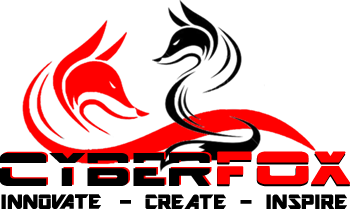Course ID: 48872
Level: NQF Level 5
Credits: 131
Qualification Title: National Certificate: Information Technology: Systems Development
What is Systems Development?
Systems development, also known as software development or application development, refers to the process of creating and maintaining computer-based systems or software applications. It involves a systematic approach to designing, coding, testing, and deploying software solutions to meet specific business or organizational needs.
Benefits of Studying Systems Development?
Studying systems development can provide numerous benefits, both personally and professionally. Here are some key advantages of studying systems development:
In-Demand Skills
Problem-Solving Abilities
Creativity and Innovation
Career Opportunities
Versatility and Transferable Skills
Continuous Learning

Personal Projects and Entrepreneurship

PURPOSE AND RATIONALE OF THE QUALIFICATION:
The purpose of this qualification is to enhance readiness and provide entry into the areas of Systems Development at NQF level 5. It prepares learners for entry into the workplace or as an undergraduate study in the Systems Development areas covered, providing them with the necessary knowledge needed for further study in the fields of Information Technology and Computer Sciences at Higher Education level.
A qualifying learner will be able to communicate effectively with fellow IT staff & users of information technology, understanding the role of technology in a business context and to be able to address business problems with appropriate information technology solutions. Learners will be able to apply the principles of creating computer software by carrying out, under limited supervision, a task of reasonable size to demonstrate an understanding of the knowledge, techniques & skills needed in one or more area of majoring/specialisation that the qualification offers.
A qualifying learner at this level will be a well-rounded IT professional, building on foundational technical skills acquired at NQF level 4, via the National Certificate in IT Technical Development or equivalent. This qualification is expanding the systems development foundation started at NQF level 4 into specialisation fields within systems development, in one or more of the following disciplines:
• Procedural Programming.
• Object Oriented Programming.
• Fourth Generation Language Programming.
• Web site development.
• Multimedia.
• Electronic Commerce.
The qualification is designed to:
• Provide qualified learners with an undergraduate entry into the fields of Information Communication Technology (ICT) and Computer Sciences, specialising in the Systems Development area
• Prepare qualified learners for initial employment into the ICT and related industries. Qualified learners will have a solid understanding of computer industry concepts and to able to work in areas of Systems Development with intermediate technical complexity.
• Allow the credits achieved in National Certificates relating to Information Technology at NQF level 4 to be used as prior learning for this qualification, where applicable.
• Allow people with workplace experience in the Systems Development areas covered, to request assessments and get recognition for prior learning.
• Allow the qualification to be acquired in the traditional way of formal study as well as in the workplace, through Learnership Schemes or Recognition of Prior Learning (RPL).
• Assist with professionalisation across the Information Technology Sector. It is intended to allow qualified learners to gain membership of registered professional bodies in the ICT industry.
QUALIFICATION RULES:
Rules regarding NQF levels of credits
The qualification consists of a minimum of 131 credits and has been designed in accordance with the SAQA rules of combination:
Rules regarding Fundamental and Core:
1. All fundamental outcomes are compulsory for this qualification (31 credits).
2. All core outcomes are compulsory (75 credits).
Rules regarding Electives:
1. A minimum of 25 elective credits needs to be completed out of one of the elective specialisation fields listed in the table below. If a programming specialisation is chosen, then all the unit standards in the chosen fields must be completed together, to be recognised as a specialisation stream.
2. A learner may specialise in more than one elective stream, as long as the rule listed above has been adhered to.
3. The qualification description will list the fields of specialisation that have been completed (according to the rules of the previous two points) on the qualification document.
4. Additional standards from any other SAQA field or sub-field may be added to the listed electives.
EXIT LEVEL OUTCOMES:
A learner will be able to:
• Communicate effectively with fellow IT staff & users of information systems
• Understand the role of technology in the business context.
• Demonstrate an understanding of problem-solving techniques, and how to apply them in a systems development environment
• Demonstrate an understanding of Systems Development, with all its implications
• Relate business problems and information technology solutions
• Apply the principles of creating computer software
The full information can be found on the SAQA Website by clicking here.
